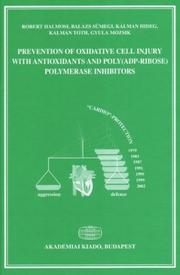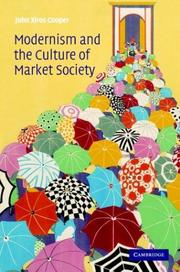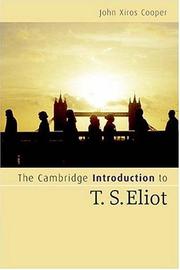| Listing 1 - 10 of 14 | << page >> |
Sort by
|

ISBN: 1909821268 9781909821262 1874774870 9781874774877 9781906764425 1906764425 1800340052 Year: 2003 Publisher: Oxford Portland, Ore. Littman Library of Jewish Civilization
Abstract | Keywords | Export | Availability | Bookmark
 Loading...
Loading...Choose an application
- Reference Manager
- EndNote
- RefWorks (Direct export to RefWorks)
This pioneering study, based on a wide range of sources and supported by numerical data, illustrates the lives and professional experiences of the individuals involved.
Jewish physicians --- Jewish lawyers --- Antisemitism --- Anti-Jewish attitudes --- Anti-Semitism --- Ethnic relations --- Prejudices --- Philosemitism --- Lawyers, Jewish --- Lawyers --- Physicians, Jewish --- Physicians --- History --- History.

ISBN: 9780521834865 0521834864 9780511485374 9780521120111 0511227582 9780511227585 0511231679 9780511231674 0511229283 9780511229282 0511230125 9780511230127 0511230907 9780511230905 0511485379 1280703083 9781280703089 1107161134 9781107161139 0511316801 9780511316807 052112011X Year: 2004 Publisher: Cambridge Cambridge University Press
Abstract | Keywords | Export | Availability | Bookmark
 Loading...
Loading...Choose an application
- Reference Manager
- EndNote
- RefWorks (Direct export to RefWorks)
Many critics argue that the modernist avant-garde were always in opposition to the commercial values of market driven society. For John Xiros Cooper, the avant-garde bears a more complex relation to capitalist culture than previously acknowledged. He argues that in their personal relationships, gender roles and sexual contacts, the Modernist avant-garde epitomised the impact of capitalism on everyday life. Cooper shows how the new social, cultural, and economic practices aimed to defend cultural values in a commercial age, but, in this task, modernism became the subject of a profound historical irony. Its own characterising techniques, styles, and experiments, deployed to resist the new nihilism of the capitalist market, eventually became the preferred cultural style of the very market culture which the first Modernists opposed. In this broad ranging study John Xiros Cooper explores this provocative theme across a wide range of Modernist authors, including Joyce, Eliot, Stein and Barnes.
English literature --- Thematology --- anno 1900-1999 --- Modernism (Literature) --- Capitalism and literature --- American literature --- Avant-garde (Aesthetics) --- Consumption (Economics) in literature. --- Economics in literature. --- Aesthetics --- Modernism (Art) --- Literature and capitalism --- Literature --- History and criticism. --- History --- Arts and Humanities --- LITTERATURE ANGLAISE --- MODERNISME (LITTERATURE) --- CAPITALISME ET LITTERATURE --- LITTERATURE AMERICAINE --- AVANT-GARDE (ESTHETIQUE) --- CONSOMMATION (ECONOMIE POLITIQUE) DANS LA LITTERATURE --- ECONOMIE POLITIQUE DANS LA LITTERATURE --- 20E SIECLE --- HISTOIRE ET CRITIQUE --- GRANDE-BRETAGNE --- ETATS-UNIS
Book
ISBN: 9780691138602 0691138605 069115970X 9780691159706 1280494050 1400842328 9786613589286 Year: 2012 Publisher: Princeton: Princeton university press,
Abstract | Keywords | Export | Availability | Bookmark
 Loading...
Loading...Choose an application
- Reference Manager
- EndNote
- RefWorks (Direct export to RefWorks)
This is a major reinterpretation of ancient philosophy that recovers the long Greek and Roman tradition of philosophy as a complete way of life--and not simply an intellectual discipline. Distinguished philosopher John Cooper traces how, for many ancient thinkers, philosophy was not just to be studied or even used to solve particular practical problems. Rather, philosophy--not just ethics but even logic and physical theory--was literally to be lived. Yet there was great disagreement about how to live philosophically: philosophy was not one but many, mutually opposed, ways of life. Examining this tradition from its establishment by Socrates in the fifth century BCE through Plotinus in the third century CE and the eclipse of pagan philosophy by Christianity, Pursuits of Wisdom examines six central philosophies of living--Socratic, Aristotelian, Stoic, Epicurean, Skeptic, and the Platonist life of late antiquity. The book describes the shared assumptions that allowed these thinkers to conceive of their philosophies as ways of life, as well as the distinctive ideas that led them to widely different conclusions about the best human life. Clearing up many common misperceptions and simplifications, Cooper explains in detail the Socratic devotion to philosophical discussion about human nature, human life, and human good; the Aristotelian focus on the true place of humans within the total system of the natural world; the Stoic commitment to dutifully accepting Zeus's plans; the Epicurean pursuit of pleasure through tranquil activities that exercise perception, thought, and feeling; the Skeptical eschewal of all critical reasoning in forming their beliefs; and, finally, the late Platonist emphasis on spiritual concerns and the eternal realm of Being.Pursuits of Wisdom is essential reading for anyone interested in understanding what the great philosophers of antiquity thought was the true purpose of philosophy--and of life.
Socrates. --- Plotinus --- Conduct of life. --- Lebensführung. --- Philosophie. --- Philosophy, Ancient. --- Weisheit. --- Wisdom. --- Griechenland. --- Conduct of life --- Philosophy, Ancient --- Wisdom --- Experience --- Intellect --- Learning and scholarship --- Reason --- Ancient philosophy --- Greek philosophy --- Philosophy, Greek --- Philosophy, Roman --- Roman philosophy --- Ethics, Practical --- Morals --- Personal conduct --- Ethics --- Philosophical counseling
Book
ISBN: 1280494050 9786613589286 1400842328 9781400842322 9780691138602 0691138605 9780691159706 069115970X Year: 2012 Publisher: Princeton, NJ
Abstract | Keywords | Export | Availability | Bookmark
 Loading...
Loading...Choose an application
- Reference Manager
- EndNote
- RefWorks (Direct export to RefWorks)
This is a major reinterpretation of ancient philosophy that recovers the long Greek and Roman tradition of philosophy as a complete way of life--and not simply an intellectual discipline. Distinguished philosopher John Cooper traces how, for many ancient thinkers, philosophy was not just to be studied or even used to solve particular practical problems. Rather, philosophy--not just ethics but even logic and physical theory--was literally to be lived. Yet there was great disagreement about how to live philosophically: philosophy was not one but many, mutually opposed, ways of life. Examining this tradition from its establishment by Socrates in the fifth century BCE through Plotinus in the third century CE and the eclipse of pagan philosophy by Christianity, Pursuits of Wisdom examines six central philosophies of living--Socratic, Aristotelian, Stoic, Epicurean, Skeptic, and the Platonist life of late antiquity. The book describes the shared assumptions that allowed these thinkers to conceive of their philosophies as ways of life, as well as the distinctive ideas that led them to widely different conclusions about the best human life. Clearing up many common misperceptions and simplifications, Cooper explains in detail the Socratic devotion to philosophical discussion about human nature, human life, and human good; the Aristotelian focus on the true place of humans within the total system of the natural world; the Stoic commitment to dutifully accepting Zeus's plans; the Epicurean pursuit of pleasure through tranquil activities that exercise perception, thought, and feeling; the Skeptical eschewal of all critical reasoning in forming their beliefs; and, finally, the late Platonist emphasis on spiritual concerns and the eternal realm of Being. Pursuits of Wisdom is essential reading for anyone interested in understanding what the great philosophers of antiquity thought was the true purpose of philosophy--and of life.
Conduct of life. --- Wisdom. --- Philosophy, Ancient. --- Ethics, Practical --- Morals --- Personal conduct --- Ethics --- Philosophical counseling --- Experience --- Intellect --- Learning and scholarship --- Reason --- Ancient philosophy --- Greek philosophy --- Philosophy, Greek --- Philosophy, Roman --- Roman philosophy --- Aristotelian life. --- Aristotle. --- Epicurean life. --- Epicurus. --- Hadot. --- Plato. --- Platonism. --- Platonist life. --- Plotinus. --- Pyrrhonian skepticism. --- Sextus Empiricus. --- Skeptic life. --- Socrates. --- Socratic knowledge. --- Socratic life. --- Stoic life. --- Stoicism. --- Stoics. --- ancient philosophy. --- biology. --- contemplative life. --- dialectic. --- ethics. --- happiness. --- human life. --- logic knowledge. --- logic. --- metaphysics. --- moral philosophy. --- physical theory. --- skeptics. --- virtues. --- wisdom.
Book
ISBN: 1523117613 1608079643 9781608079643 9781523117611 9781608079636 1608079635 Year: 2015 Publisher: Boston : [Piscataqay, New Jersey] : Artech House, IEEE Xplore,
Abstract | Keywords | Export | Availability | Bookmark
 Loading...
Loading...Choose an application
- Reference Manager
- EndNote
- RefWorks (Direct export to RefWorks)
Placing emphasis on practical ""how-to"" guidance, this cutting-edge resource provides a first-hand, insider's perspective on the advent and evolution of smart grids in the 21st century. This book presents engineers, researchers, and students with the building blocks that comprise basic smart grids, including power plant, transmission substation, distribution, and meter automation. Moreover, this forward-looking volume explores the next step of this technology's evolution. It provides a detailed explanation of how an advanced smart grid incorporates demand response with smart appliances and ma.
Electric power distribution --- Smart power grids --- Electrical Engineering --- Electrical & Computer Engineering --- Engineering & Applied Sciences --- Grids, Smart power --- Power grids, Smart --- Smart grids (Electric power distribution) --- Automation --- Smart power grids. --- Automation.

ISBN: 0521547598 0521838886 9780521838887 9780521547598 9780511617959 0511245904 9780511245909 0511242921 9780511242922 0511245173 9780511245176 9780511244421 0511244428 9780511246593 0511246595 051161795X 0511567189 9780511567186 1107162319 9781107162310 1280702311 9781280702310 Year: 2006 Publisher: Cambridge Cambridge University Press
Abstract | Keywords | Export | Availability | Bookmark
 Loading...
Loading...Choose an application
- Reference Manager
- EndNote
- RefWorks (Direct export to RefWorks)
T. S. Eliot is not only one of the most important poets of the twentieth century; as literary critic and commentator on culture and society, his writing continues to be profoundly influential. Every student of English must engage with his writing to understand the course of modern literature. This book provides the perfect introduction to key aspects of Eliot's life and work, as well as to the wider contexts of modernism in which he wrote. John Xiros Cooper explains how Eliot was influenced by the intellectual climate of both twentieth-century Britain and America, and how he became a key cultural figure on both sides of the Atlantic. The continuing controversies surrounding his writing and his thought are also addressed. With a useful guide to further reading, this is the most informative and accessible introduction to T. S. Eliot.
Eliot, T.S. --- 820 "19" ELIOT, THOMAS STEARNS --- 820 "19" ELIOT, THOMAS STEARNS Engelse literatuur--20e eeuw. Periode 1900-1999--ELIOT, THOMAS STEARNS --- Engelse literatuur--20e eeuw. Periode 1900-1999--ELIOT, THOMAS STEARNS --- Eliot, T. S. --- Eliot, Thomas Stearns --- Criticism and interpretation. --- Authors, American --- American authors --- Ai-lüeh-tʻe, --- Īliyūt, T. S., --- Elliŏtʻŭ, --- Eliot, Thōmas S., --- Eliot, Th. S., --- Eliot, Thomas Stern, --- Elyoṭ, T. S., --- Ėliot, Tomas Stirns, --- אליוט ט.ס --- אליוט, ת. ס. --- Arts and Humanities --- Literature
Book
ISBN: 1613241348 9781613241349 1606925474 9781606925478 Year: 2009 Publisher: New York Nova Science Publishers
Abstract | Keywords | Export | Availability | Bookmark
 Loading...
Loading...Choose an application
- Reference Manager
- EndNote
- RefWorks (Direct export to RefWorks)
Gangs --- Gang prevention
Book
ISBN: 1608071286 9781608071289 9781608071272 1608071278 Year: 2011 Publisher: Boston Artech House
Abstract | Keywords | Export | Availability | Bookmark
 Loading...
Loading...Choose an application
- Reference Manager
- EndNote
- RefWorks (Direct export to RefWorks)
Placing emphasis on practical "how-to" guidance, this cutting-edge resource provides you with a first-hand, insider's perspective on the advent and evolution of smart grids in the 21st century (smart grid 1.0). You gain a thorough understanding of the building blocks that comprise basic smart grids, including power plant, transmission substation, distribution, and meter automation. Moreover, this forward-looking volume explores the next step of this technology's evolution. It provides a detailed explanation of how an advanced smart grid incorporates demand response with smart appliances and management mechanisms for distributed generation, energy storage, and electric vehicles. The Advanced Smart Grid uses the design and construction of the first citywide smart grid in the US as a case study, sharing the many successes and lessons learned. You gain working knowledge of successful tools and best practices that are needed to overcome diverse technological and organizational challenges as you strive to build a next-generation advanced smart grid (smart grid 2.0). Additionally, this unique book offers a glimpse at the future with interconnected advanced smart grids and a redesigned energy ecosystem (smart grid 3.0).
Book
Year: 2017 Publisher: Amsterdam, [Netherlands] : Academic Press,
Abstract | Keywords | Export | Availability | Bookmark
 Loading...
Loading...Choose an application
- Reference Manager
- EndNote
- RefWorks (Direct export to RefWorks)
Abstract | Keywords | Export | Availability | Bookmark
 Loading...
Loading...Choose an application
- Reference Manager
- EndNote
- RefWorks (Direct export to RefWorks)
| Listing 1 - 10 of 14 | << page >> |
Sort by
|

 Search
Search Feedback
Feedback About UniCat
About UniCat  Help
Help News
News